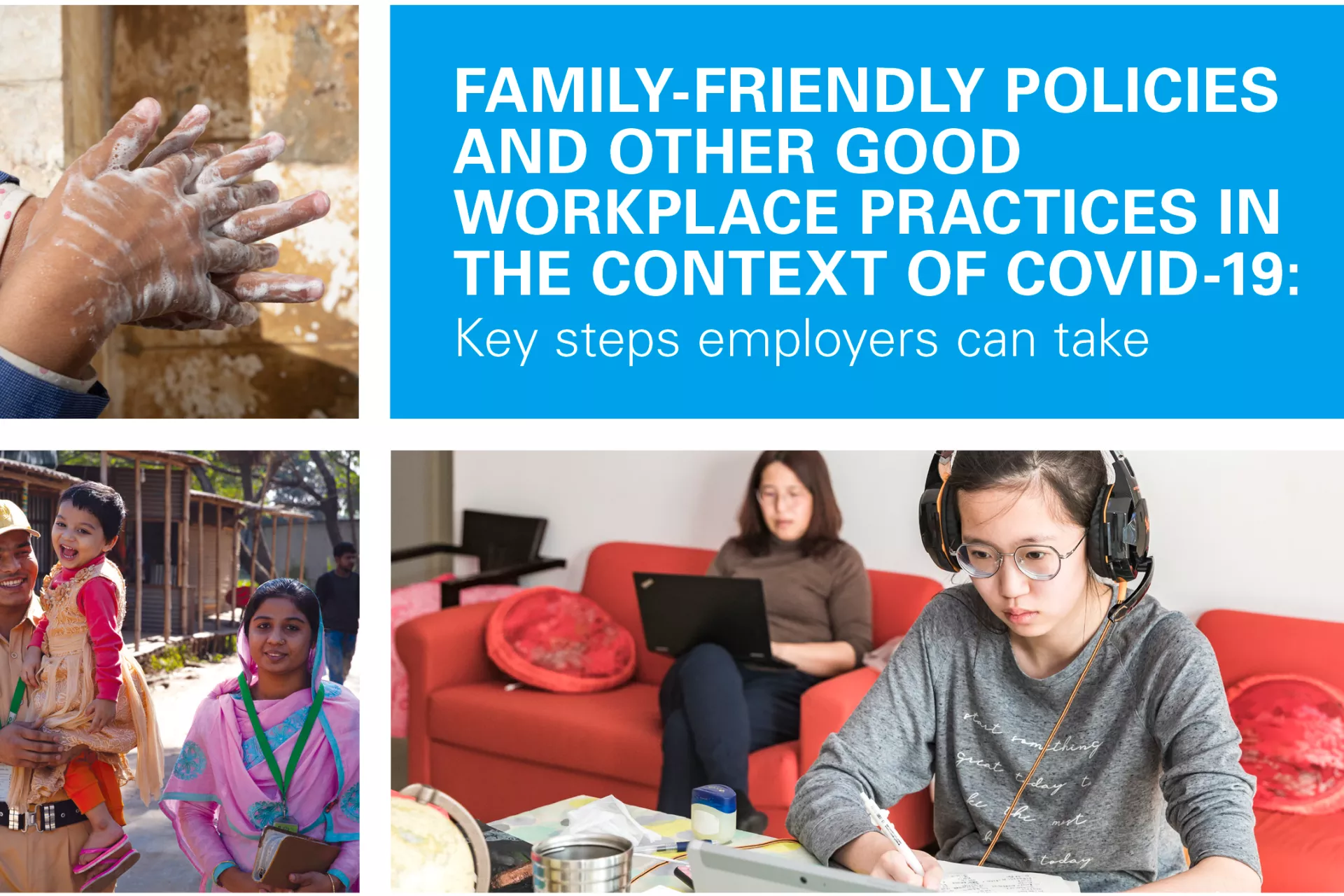Family-friendly policies and other good workplace practices in the context of COVID-19
Key steps employers can take

- Available in:
- 中文
- English
About
The consequences of the coronavirus disease (COVID-19) outbreak are unprecedented and felt around the world. The pandemic is heavily affecting labour markets and economies, including global supply chains, leading to widespread business disruptions. With many businesses struggling to survive, loss of jobs and income and rising working poverty are a reality for many workers. Self-employed, domestic and care workers and those in casual or temporary agency employment are at particular risk. The absence of adequate social protection systems exacerbates working families’ vulnerability to the crisis.
For many children and their families, the fast-evolving situation means disrupted education and childcare, family illness and potential loss of household income. Restrictions on free movement and the socio-economic fallout of the crisis put children at heightened risk of abuse, neglect and violence. In the context of school and childcare closures, domestic care responsibilities for working parents, especially women, have increased considerably during the crisis.
By giving working parents the time, information, services and resources they need to cope with the crisis, family-friendly policies and practices can make a critical difference. They also make an important contribution to wider social protection. Employment and income protection, paid leave to care for family members, flexible working arrangements and access to quality, emergency childcare are important measures that enable workers to protect and care for themselves, their children and their relatives. Employers can also play an important role in gathering and reporting sex-disaggregated data on how the situation is particularly affecting women.
This document offers (interim) recommendations for employers to mitigate the negative consequences stemming from COVID-19.




